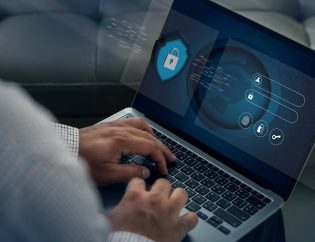
Introduction
In today’s digital age, online piracy has become a serious threat affecting users, content creators and companies alike. The unauthorized distribution of digital content exposes users to significant security and privacy risks. This article will guide you on the dangers of online piracy, anti-piracy measures and practical tips to protect yourself.
Online piracy poses serious risks, from malware to data breaches. Protect your digital assets and privacy by using secure sources and staying informed on best practices. Stay safe online! #CyberSecurity
— Hyper Secure (@HyperSecure) November 7, 2024
What is Online Piracy?
Online piracy refers to the unauthorized sharing or downloading of digital media—such as movies, music, e-books, software and other copyrighted content—without permission from the content creator. This illegal practice often occurs on various platforms, including torrent sites, streaming services and file-sharing networks. The impact of online piracy extends across the entire industry, resulting in significant revenue losses for creators and companies, while also undermining intellectual property rights. By bypassing legal channels, piracy compromises the value of digital content, affecting both creators’ livelihoods and the broader economy.
Piracy continues to grow, despite laws aimed at limiting it, primarily because of easy internet access and the attractiveness of “free” content.
The Risks and Dangers of Online Piracy
Engaging with pirated content doesn’t only harm content creators; it also opens users up to significant risks, including malware infections and data theft. Here are some key dangers associated with online piracy:
1. Malware & Viruses
Pirated files often contain hidden malware or viruses. These can infect your device when downloaded, potentially stealing sensitive information or damaging files.
2. Identity Theft
Personal information is frequently collected on pirated websites and this data may be sold to hackers. This can lead to identity theft, financial loss and unauthorized access to your accounts.
3. Loss of Personal Data
Pirated sites and downloads are a leading cause of data breaches. Your private data can be exposed to cybercriminals, causing privacy issues and potential financial losses.
Quote:
“Piracy is theft. It’s stealing somebody else’s work.” — Tim O’Reilly, Technology Entrepreneur
How to Prevent Online Piracy
Preventing online piracy requires a combination of secure technology and proactive awareness. One of the best ways to guard against unauthorized content sharing is to use Digital Rights Management (DRM) software, which restricts access to content and limits the ability to copy or share it. Educating users is another effective step. Informing the public about the dangers of piracy and its impact on the industry can deter individuals from using pirated content. Additionally, companies can benefit by partnering with cybersecurity firms that specialize in solutions to online piracy, ensuring a layered approach to content protection.
Solutions to Online Piracy
There are various solutions to online piracy available that can help mitigate its impact. One solution involves encryption, a process that scrambles data to protect it from unauthorized access. Another effective method is watermarking, which places unique, invisible markers on digital files, helping content creators track the origins of pirated material. Companies can also leverage automated takedown services that continuously search the internet and request the removal of unauthorized content. Together, these strategies work to reduce the spread of pirated content and protect digital assets.
Solutions to Online Piracy for Individuals and Businesses
Both individuals and companies can implement effective solutions to online piracy to protect their data and digital content.
For Individuals:
For Businesses:
Automated Monitoring:
Use software that detects when and where your content is shared without permission.
Secure Payment Gateways:
Ensure that all purchases and downloads are made through secure, verified systems.
Employee Awareness Training:
Educate employees about online security and the risks of piracy.
Customer Testimonial
“After integrating Hyper Secure’s solutions, our organization experienced a 50% decrease in unauthorized downloads within the first quarter, drastically improving our content security and data protection.”
Common Risks of Online Piracy and Preventive Measures
| Risk | Impact | Solution |
|---|---|---|
| Malware & Viruses | Device damage, data breaches | Use antivirus and secure sites |
| Identity Theft | Financial and reputational loss | Secure browsing habits |
| Data Loss | Personal data exposure | Encrypted file storage |
Conclusion: How Hyper Secure Can Help
Hyper Secure offers powerful, comprehensive tools to detect and combat online piracy. Our solutions, in collaboration with leading anti-piracy companies, help individuals and businesses protect their digital assets, reduce unauthorized content sharing and maintain online security. Let Hyper Secure be your trusted partner in securing your online presence.
This incorporates the Anti-Piracy Company mention seamlessly, enhancing the content’s focus on comprehensive protection.
FAQs
Q1: What is online piracy?
A: Online piracy is the unauthorized downloading or sharing of digital content, such as movies or software, without permission from the creator, often leading to financial and security risks.
Q2: How to avoid piracy online?
A: Avoid unauthorized download sites, use reputable security software and stay updated on safe browsing practices to reduce risks associated with online piracy.
Q3: How to stop online piracy?
A: Use reliable piracy detection tools, secure digital content with protective measures and educate users about the legal and security risks of engaging in online piracy.
Q4: What are the dangers of online piracy?
A: Online piracy exposes users to malware infections, identity theft, potential data breaches and financial losses, posing significant risks to individuals and businesses alike.
Q5: What are solutions to online piracy for businesses?
A: Businesses can combat piracy by using monitoring software, securing payment gateways and educating employees on online security and anti-piracy practices.

